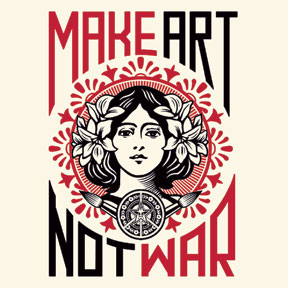This week, the topic is needles. I picked it because I am thrilled to have found the right ones for the work I do. Andrea from Creative House suggested that I use Topstitching needles for free motion. I use them for threadpainting as well. The threads don't shed & break at the eye. The reason they don't break for me now is because top-stitching needles have a groove past the eye where the thread can lie tucked away from all the wear & tear while puncturing the fabric.
 |
| See the spooned-out groove at either end of the needles' eye? |
The same holds true for handstitching such as redwork, crewel, and binding too! If you use these crewel needles, you'll notice that there won't be that final tug & pop as you pull the end of the needle through. Again, this is because the groove allows for the threads to tuck away and essentially create less bulk. That is how I make all those french knots through canvas without a thimble and without sore fingers.
I'm happy to find the topstitching needles really help with quilting. I've had lots of advice: quilting needles, jeans/denim needles, who cares - use universal needles, use only Janome needles... I've heard it all. I wish my machine wasn't so darn picky. So, thank you Andrea for your great advice!
Any other tips on needles? Ha ha - no that's not meant to be a pun. Leave your comment below. There's lots to learn about needles (size, storage, how often do you change them, etc). Thank you!
~Monika














9 comments:
I have a question - what your system do you sue to remember what size and kind of needle you have in your machine? I sew dance costumes and use needles for stretch fabric. I also do crafts and use non-stretch or universal needles. But I can never remember what kind of needle is in the machine! Tips?
my goodness that had typos - I should be in bed! sorry!
to remember what needle is in the machine,Mark each section of a tomato pin cushion with the size/kind needle(s) you use. Put one needle in each section. Then pick your needle. Whichever one is missing is the one in your machine...
i use a stickie note or a little piece of masking tape on the bed of my machine to record what kind/size of needle is being used...
cheers
molly
It's important to use the correct needle for the job. You can Google "sewing machine needle chart" and come up with a nice description of the various types of needles and their uses.
One of my teachers recommended to never use a universal.
If you are having trouble with breaking thread or skipped stitches it is almost certainly a needle problem.
If you've just inserted a new needle and are still having problems, change it again. Even a new needle can have a burr,I know that from experience.
I agree with Monika about the topstitch needle. It's one of my faves.
Joyce
I found, through trial and error (lots of trial and error) that the same is true with my machine and FMQ-ing. My machine's favorite needle is Schmetz microtex sharp needles, 80/12. I like to piece with smaller needles, 75/11 (I sew with a lot of batiks, which are tighter weave, so the thinner needles seem to work better). If I forget to change, to the 80/12 when I FMQ, I know soon. Also, frequent changes of needles helps. I sew all sorts of things too, and the needle really does make a difference... ball point for knits, heavy duty for jeans, etc...
Once again I am learning so much! It's very interesting to read and it leaves me wondering about what I'm using now, ha!
Great information in both your post and in the comments; greatly appreciated and thanks.
Great tips on needles. I didn't know about the hand needles, thanks. I think we tend to overlook the attention our sewing needles need, mainly to change them frequently. They are costly, but new ones make life so much better.
Janice, I am like you just can't remember what needle is in the machine. I use up my old finger nail polish to mark them. Works pretty good.
Jeane
Post a Comment